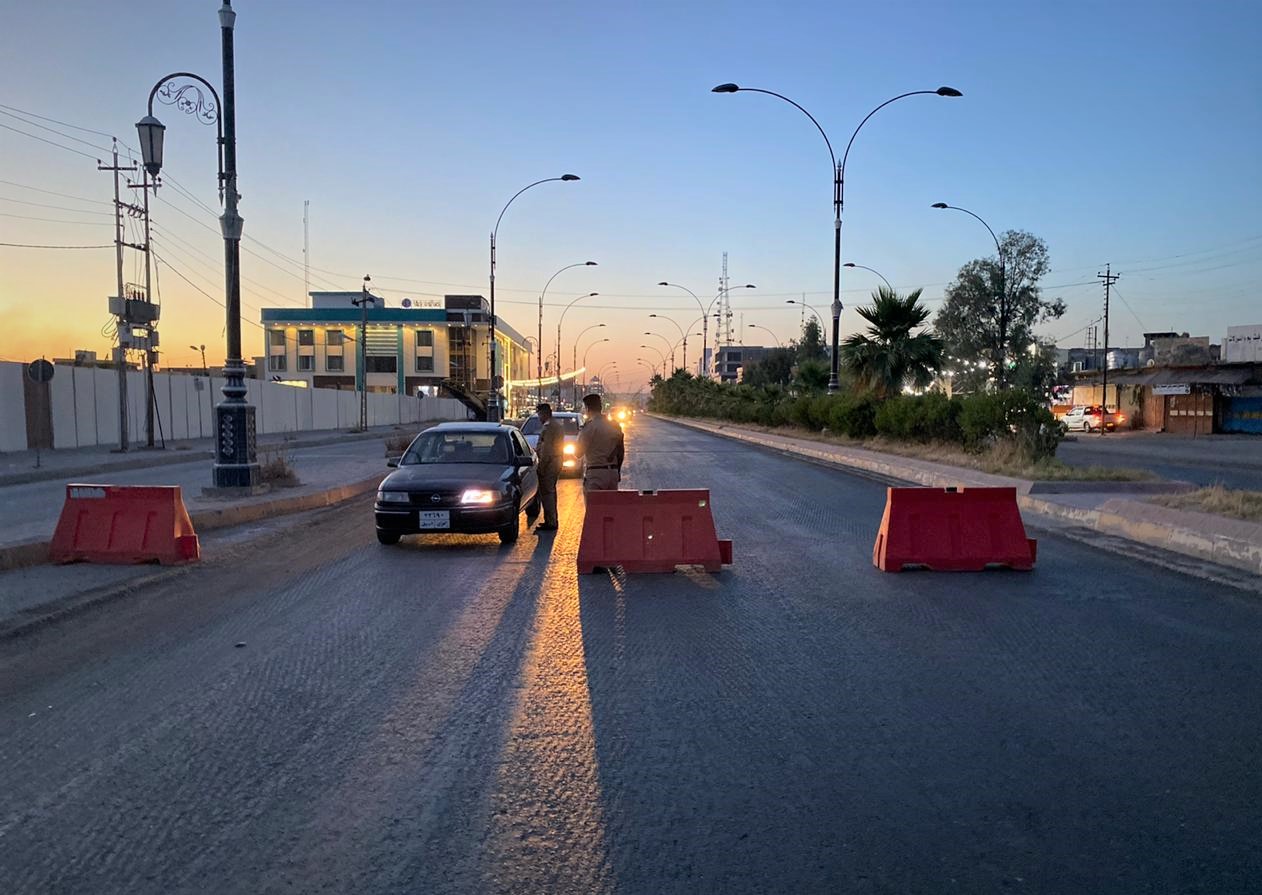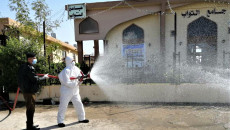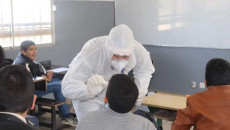Kirkuk crisis group decided to shut all Kirkuk checkpoints in face of other cities as part of the new plan to fight the late surge in Covid-19 cases.
The group held a meeting on Wednesday in Kirkuk Province office. The curfew with neighbor cities starts 8 pm on Friday up to 5 am on Sunday. In town curfew lasts till Monday. Security forces, healthcare staff, pharmacies and groceries are excluded from curfew restrictions.
The high committee for national health and safety chaired by Iraqi Prime Minster Musfata al-Kadhimi has decided on Saturday to implement full curfew on Fridays, Saturdays and Sundays and night curfew from 8 pm to 5 am effective Feb. 18 to March 8 due to spike in Covid- 19 cases.
Iraqi minister of health announced identification of new variant of Covid-19 virus in a press conference on Monday. The ministry has tested several suspects and the cases proved to be holders of the Covid-19 variant, registered fall of 2020 in the United Kingdom and South Africa.
Kirkuk crisis group decided to follow measures of health ministry from Thursday.
Schools will be shut up to March 4th as they used to attend classrooms once a day. Alternatively, schools will offer away learning. The closure is renewable in case the figures keep soaring, the statement by the committee added.
Ordinary life has been resumed in Iraq since last April as authorities eased restrictions except closure of schools. Pupils were attending classrooms once a day and schools offer away learning.
The new restrictions include intercity travel ban, compulsory masking and social distancing in the public. All mosques and worship houses will be closed except during prayer times. Funerals, parties and social gatherings are banned. The penalty for violation of social gathering is 5M Iraqi Dinars ($3,500). The shutdown covers malls, cafes, gyms, swimming pools, and cinemas.
Iraq has registered about 653,557 infection cases and 13,204 deaths since February 2020 up to Wednesday, Iraqi ministry of health data shows. Daily cases in Iraq have surged from 1.000 infections a day in January to more than 3,500 on February 17, pushing the government to take tougher security and health measures.







